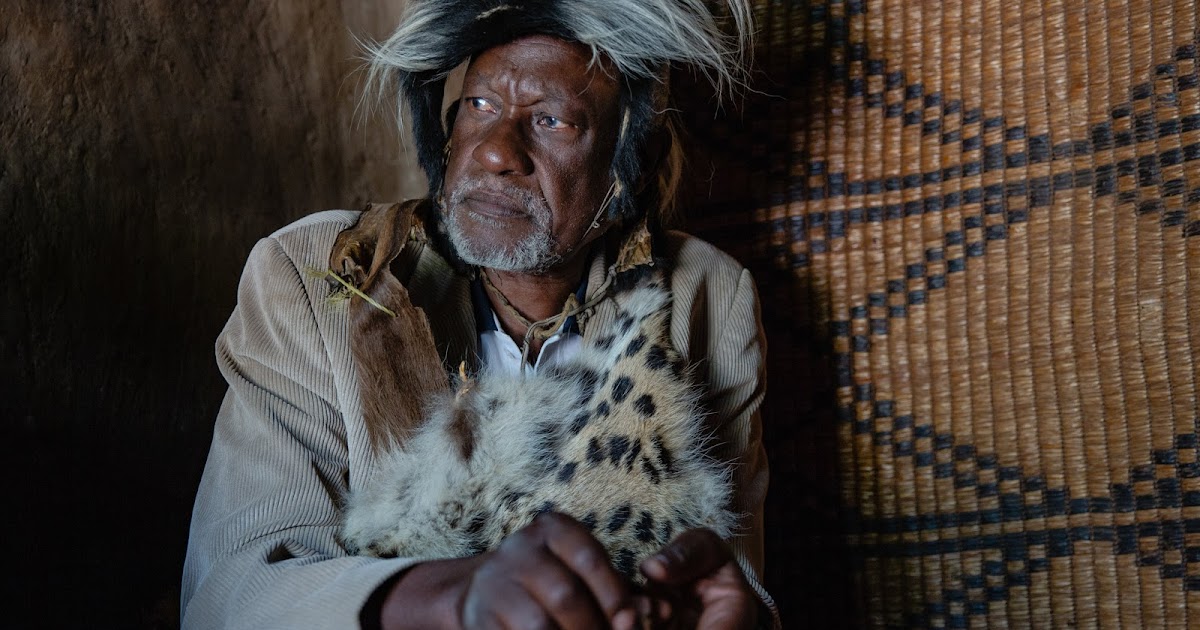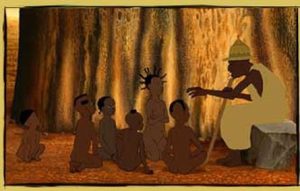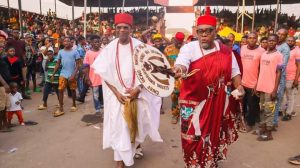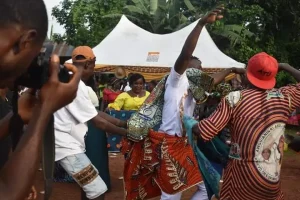In Igbo society, spirituality and religion are fundamental aspects of everyday life; many entities and people occupy major roles of respect and power. Among these numbers is the Eze Mmuo, a title meaning “King of Spirits” or “Chief Priest.” The Eze Mmuo is guardian of religious traditions, spiritual leader, middle between the living and the spiritual realm. Examining his duties, the method of selection, and his ongoing relevance in modern Igbo society, this paper explores the Eze Mmuo’s place and value in Igbo culture.
The Role of Eze Mmuo
Comprising the spiritual leader of a society, the Eze Mmuo is in charge of preserving the link between the physical world and the spiritual one. The Eze Mmuo, a head priest, supervises religious ceremonies, rites, and offerings necessary to please the gods and ancestors. His responsibilities include of seeking direction, protection, and benefits for the community by means of interactions with the spiritual realm. The Eze Mmuo is a fundamental person in the spiritual and social life of the society as he is supposed to understand the will of the gods and transmit it to the people.
The Eze Mmuo’s main duty is to carry out community-serving ceremonies and sacrifices on behalf of them. Often carried out to guarantee abundant crops, shield the society from natural calamities, and settle disputes are these ceremonies. Acting as a middleman, the Eze Mmuo offers petitions to the gods and ancestors and sacrifices to ask their favor. These ceremonies are firmly anchored in the conviction that the physical world is directly influenced by the spiritual realm and that the Eze Mmuo is very vital in preserving this equilibrium.
The Eze Mmuo also oversees significant events like burials, initiations, and celebrations. He guides the society in respecting the gods and ancestors throughout these celebrations, therefore guaranteeing the correct observance of the rites. His presence and guidance provide these rites spiritual power, therefore strengthening the link of the society to its religious and cultural legacy.
Selection and Training of Eze Mmuo
Choosing an Eze Mmuo is a deeply ingrained custom combining spiritual, family, and community elements. Usually inherited, the role is handed on via certain lineages seen to have a particular relationship to the spiritual realm. Not every male member of these lineages, nevertheless, qualifies to be an Eze Mmuo. Usually, the choosing procedure consists of talks with diviners and other spiritual leaders to find the person with the spiritual traits and temperamental fit for the post.
After chosen, the person enters a period of training and initiation when he picks up the holy rites, prayers, and chants linked with the post. Elder priests and spiritual leaders with great expertise in the religious practices of the community lead this instruction. The initiate also receives instruction in spiritual world communication, sign and omens interpretation, and sacrifice performance. The Eze Mmuo has to be ready for his responsibilities by means of this training time.
The start of the Eze Mmuo is signaled by complex rites involving the whole village. Often including sacrifices, feasts, and traditional dances, these rites represent the initiate’s metamorphosis into a spiritual leader. Once the initiation is over, the new Eze Mmuo takes on the mantle of spiritual leadership and starts to protect the sacred traditions of the society.
The Eze Mmuo Affecting Social and Moral Order
Apart from his religious responsibilities, the Eze Mmuo is also important in preserving social and moral order within the society. Often relied upon to arbitrate conflicts, render decisions, and enforce traditions and customary laws is he is. Considered as a moral authority, the Eze Mmuo makes judgments motivated by the will of the gods and ancestors. By means of dispute resolution, he helps to preserve peace and guarantees that justice is rendered in line with conventional ideals.
Furthermore in charge of making sure the society follows moral and ethical guidelines is the Eze Mmuo. This covers maintaining taboos, practices, and social conventions said to have been established by the gods. Norm violations are seen as transgressions not just of the community but also of the spiritual realm. To restore harmony and stop spiritual retribution, the Eze Mmuo may levy fines or call atonement ceremonies.
Moreover, the Eze Mmuo is very important in helping the society negotiate difficulty. The Eze Mmuo is sought for spiritual direction and assistance whether one is dealing with natural calamities, diseases, or wars. By means of ceremonies, prayers, and offerings, he aims to safeguard the society and provide the favor of the gods during trying circumstances. His leadership throughout such crises supports his reputation as a fundamental player in the social and spiritual life of the society.
Eze Mmuo and the Changing Dynamics of Igbo Society
Although the Eze Mmuo still plays a major role, the dynamics of Igbo society have evolved throughout time in response to elements like urbanization, education, and the advent of Christianity and Islam. These developments have impacted certain communities’ Eze Mmuo’s influence as well as their customary religious activities. The power of the Eze Mmuo may be less evident in metropolitan regions, where contemporary lives and religious beliefs prevail, than in rural villages where traditional activities are more firmly ingrained.
Notwithstanding these developments, the Eze Mmuo is still very significant in Igbo society. The Eze Mmuo is still a beloved person whose importance is fundamental to the continuity and character of many rural towns. There is frequently syncretism in even places where contemporary faiths predominate, with old beliefs and customs coexisting with Christianity or Islam. For certain ceremonies, especially those involving land, fertility, and ancestor devotion, the Eze Mmuo could still be consulted.
Additionally helping to explain the Eze Mmuo’s ongoing importance is efforts to protect and advance Igbo cultural legacy. Working to record and honor the Eze Mmuo’s contribution to preserving Igbo customs for next generations, cultural groups, academics, and traditionalists have This has served to guarantee, even as society changes, the recognition and appreciation of the spiritual and cultural relevance of the Eze Mmuo.
Conclusion
Emulating the close link between the physical and spiritual worlds, the Eze Mmuo is pillar of Igbo spirituality and culture. Maintaining this link via rites, sacrifices, and ceremonies honoring the gods and ancestors, the Eze Mmuo—a spiritual leader—is in charge of His responsibility goes beyond religious obligations to include keeping social and moral order, leading the society through crises, and preserving conventional values.
In many Igbo villages, the Eze Mmuo is still a revered person even with the changes brought about by industrialization and the acceptance of different faiths. His ongoing relevance illustrates the value of spiritual leadership in Igbo society as well as the ongoing relevance of customs and ideas. The Eze Mmuo is a monument of continuity, legacy, and the ongoing power of the spiritual world in forming human experience as Igbo civilization negotiates the complexity of the contemporary world.
Please read all our stories on African Culture here




